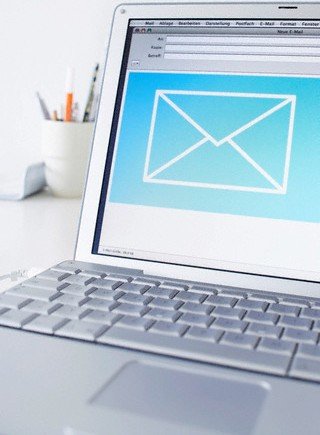 If you are one of those people who do precisely nothing after a job interview other than wait for the recruiter’s decision, then you certainly aren’t alone. In fact, much to the dismay and disgust of employers, the vast majority of interviewees fail to follow up. Not only is this perceived as being downright ill-mannered though, but job seekers deprive themselves of some incredibly valuable opportunities by not doing so.
If you are one of those people who do precisely nothing after a job interview other than wait for the recruiter’s decision, then you certainly aren’t alone. In fact, much to the dismay and disgust of employers, the vast majority of interviewees fail to follow up. Not only is this perceived as being downright ill-mannered though, but job seekers deprive themselves of some incredibly valuable opportunities by not doing so.
Even though you thanked the interviewer for their time and consideration before you left the interview, it’s still considered to be good form to write a thank you letter after the event. This is something that you need to do as soon as you possibly can after the interview, however, because your timing here could be absolutely crucial in terms of putting your name at the forefront of the recruiter’s mind just when he or she is making that all-important hiring decision. When you create your letter though, you shouldn’t just be thinking about thanking the interviewer, but also about:
- Re-emphasizing how and why you are the perfect fit for the role
- Filling any gaps that you might have left during the interview itself and/or
- Correcting any blunders that you might have made
Even with the best will in the world, when recruiters sit down to interview what might be dozens of candidates, they all start to become a bit of a blur. Of course, interviewers do take notes during interviews so that they can assess each of the candidates fairly, but unless someone comes across really strongly or something is said that makes them stick in the interviewer’s mind, it can be hard to tell them apart after the event.
When you write your follow-up letter, therefore, your first aim should be to remind the recruiter of who you are by referring to something memorable that came up during the course of your discussion. It could be something that the interviewer brought up or that you yourself raised, but either way, when the interviewer reads your letter he is likely to remember the conversation and the person he was talking to at the time. You might, for example, begin your letter with something like, “I am writing to thank you for the opportunity to meet with you earlier today, as well as to say, once again, how impressed I was to hear about your organization’s nomination for the coveted Company of the Year award.”
The bulk of your follow-up letter should then be devoted to reinforcing the match between what you have to offer and the role that you have just interviewed for. In fact, you could start your second paragraph by telling the interviewer explicitly that your meeting reinforced your desire to work for the company, as well as the added value that you believe you could bring to the role. How you follow on from this though, will depend on whether you merely wish to reiterate how your skills and experience match up to certain elements of the job, whether you need to address any concerns or weaknesses that the interviewer might have raised, whether you need to bring in something that you forgot to mention during the interview such as some relevant experience or a particular skill or qualification that you left out, or whether you want to correct a misunderstanding of some kind. Whichever is the case, use this opportunity to really sell yourself all over again by making direct links between what you can do and the problems or issues that the recruiter is facing.
All that remains then is to close your letter with a final vote of thanks and a call to action. You might invite the interviewer to contact you should he or she require any further information, for instance, and then remind them of your contact number.
Interviewees clearly have no way of knowing just how much of a close call it sometimes is between them and the next candidate, but when two candidates are very closely matched, a perfectly-timed follow-up letter can really make a difference in terms of making one stand out over the other. In fact, because so few candidates bother to send one at all, a perfectly-timed follow-up letter can make any candidate stand out.




